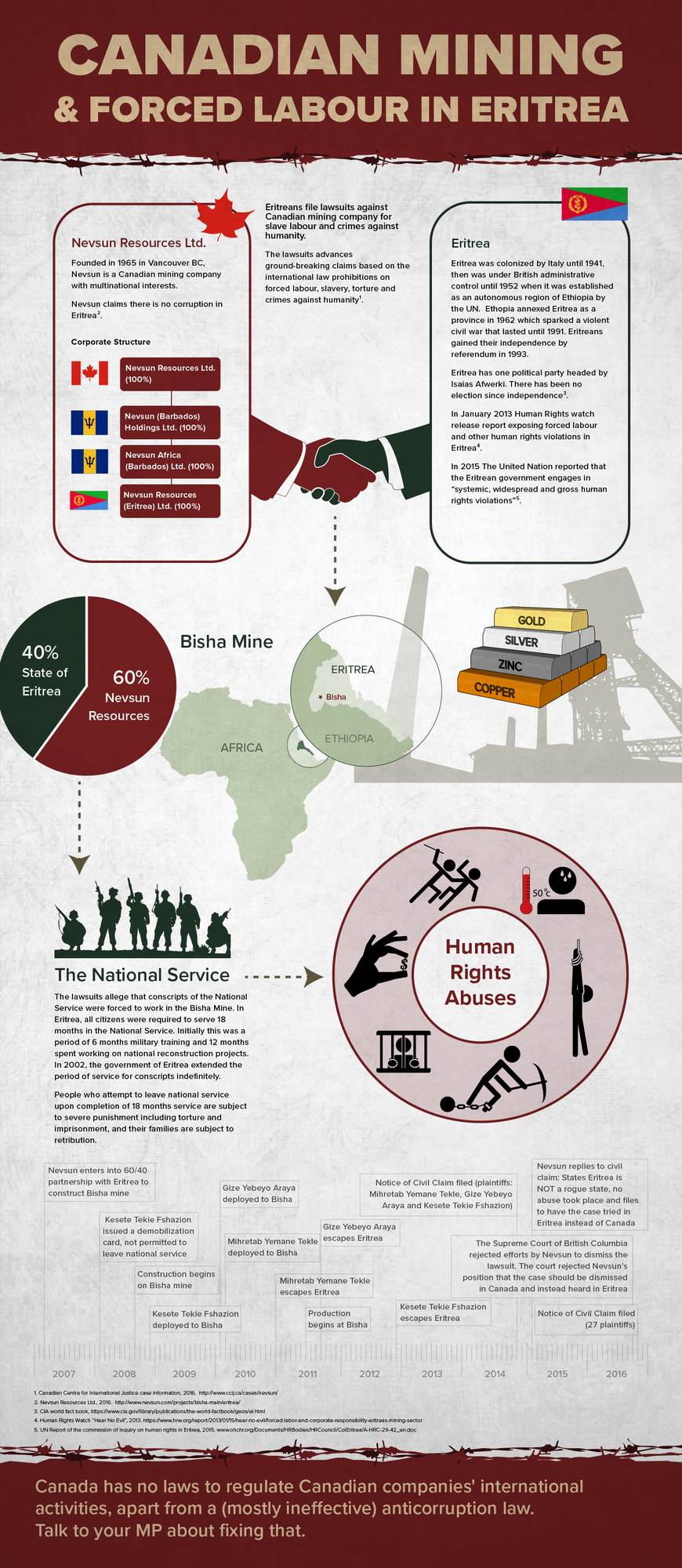(Ottawa) In a judgment released today, the Supreme Court of Canada has ruled that a lawsuit brought against Nevsun Resources Limited by former mine workers regarding the use of forced labour at its Bisha mine in Eritrea should be heard in British Columbia – not in Eritrea, as the company had argued.
The non-governmental organisation MiningWatch Canada was an intervener in the case, and was represented by Andrew Cleland and Trudel Johnston & Lespérance.
MiningWatch spokesperson Jamie Kneen said, “We are greatly encouraged by this ruling. We intervened in this case because it is important that the victims of abuse in connection with Canadian mining operations internationally should be able to seek justice in Canada, and we are very happy that the Supreme Court has moved the law firmly in this direction.”
The Supreme Court of Canada ruling is a final rejection of efforts by Nevsun, based in British Columbia before it was acquired by Zijin Mining, to argue that a lawsuit brought by three Eritrean men who allege they were forced to work at the company’s Bisha mine in that country should not be heard in Canada.
“Canada’s extractive industry must be held accountable when it participates in human rights violations or other forms of wrongful conduct in the Global South – this decision is a major step in that direction,” said Jean-Marc Lacourcière of the Trudel Johnston & Lespérance law firm.
The plaintiffs, who are Eritrean refugees, allege that as military conscripts, they were forced to work for an Eritrean military contractor at the Bisha gold-copper-zinc mine, in violation of international laws against forced labour, slavery, and torture, and that Nevsun was complicit in their treatment.
Nevsun had claimed that since the Eritrean government is accused of carrying out the actual alleged abuses, the ‘act of state’ doctrine in the common law, which protects the sovereign rights of governments over their internal affairs (in this case, Eritrea’s treatment of its own citizens), means that Canadian courts should defer the matter to Canadian diplomatic channels, and that any legal case should only take place before the courts of Eritrea.
MiningWatch had argued against this interpretation of the ‘act of state’ doctrine. “While this case does implicate foreign state conduct, it is a private civil dispute and does not engage the Canadian government’s conduct of foreign affairs,” said Kneen. “We also argued that this view acknowledges the need to provide access to justice, and complements Canadian policies for promoting corporate accountability.”
Kneen added that foreign victims already face serious difficulties in bringing civil claims, and Canadian courts and policy-makers should be focused on trying to facilitate access to justice for them. “It’s hard enough for victims – and their lawyers – to find the resources to pursue a claim, without having to overcome additional obstacles,” he said.
The judgment dismissing Nevsun's appeal may be found on the Supreme Court of Canada web site here.
For more information: Jamie Kneen, cell (613) 761-2273
